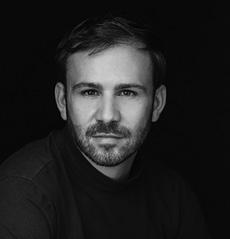Program Notes Erich Wolfgang Korngold is a representative of the last gasp of the late Romantic spirit in Vienna. He never veered from this established idiom and never ventured into modernistic experiments. A true child prodigy, his works were performed in public in Vienna by the time he was 11 (a fact that may have been helped by his father, the music critic of Vienna’s most prestigious newspaper, Neue Freie Presse). In the early part of the century Korngold was known mainly through his operas (Violanta, Die tote Stadt, Das Wunder der Heliane) but today he is primarily remembered by his pioneering film music, an art he embraced wholeheartedly when he came to Hollywood in 1934 at the urging of the director Max Reinhardt. The Adventures of Robin Hood, released in 1938, was one of the two film scores by Erich Wolfgang Korngold that won an Oscar. The music is considered Korngold’s finest, helping to propel the swashbuckling stage action of the all-star cast. Korngold put together a seven-section suite from the movie score, considered the official Robin Hood Suite. The last section is the “Victory/Finale”.
Sergei Rachmaninoff Piano Concerto No. 2 in C minor, Op. 18 Sergei Rachmaninoff was born on April 1, 1873 in Novgorod Governorate, Russia, and died on March 28, 1943 in Beverly Hills, California. The score for his Piano Concerto No. 2 calls for two flutes, two oboes, two clarinets, two bassoons, four horns, two trumpets, three trombones, one tuba, timpani, percussion, and strings. The duration is approximately 33 minutes. Sergei Rachmaninoff grew up in a middle-class musical family, but under strained economic conditions. His father, a gambler and an alcoholic, squandered the family’s fortune to the point that eventually his mother and father separated. She had to sell what remained of the family’s assets and move into a small apartment in St. Petersburg. Sergei – whose care in better times would have been entrusted to a nanny – consequently grew up with little supervision. His schooling suffered as a result. Although he showed early promise as a pianist and obtained a scholarship to study at the St. Petersburg Conservatory, the administration threatened to expel him for failing to attend classes. He subsequently transferred to the Moscow Conservatory where his mentor, Nikolay Zverev, discouraged his initial attempts at composing. Nevertheless, Rachmaninoff continued to march to his own drummer, defying his teacher and transferring to classes in counterpoint and composition. Clearly, his sense of his own worth was more accurate than that of his professors. While still a student, he produced a string of successful works, including the tone poem Prince Rostislav, his first Piano Trio, and a flood of songs and piano pieces. For rockfordsymphony.com | Rockford Symphony Orchestra
19





